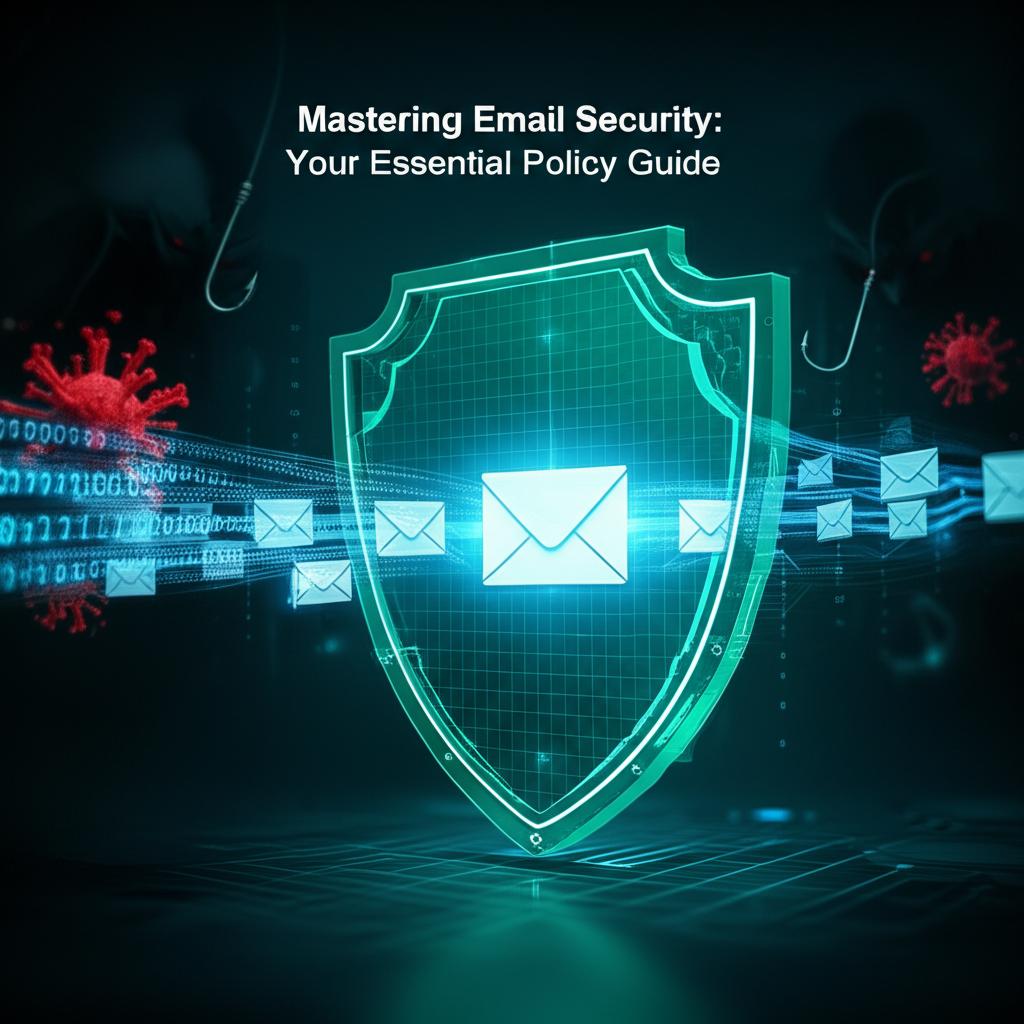Mastering Email Security: Your Essential Policy Guide
What is an Email Security Policy?
In today’s interconnected digital landscape, email remains the primary communication channel for businesses and individuals alike. However, it’s also a leading vector for cyberattacks, making robust security measures indispensable. An Email Security Policy is a formal document that outlines the rules, procedures, and technologies an organization implements to protect its email communications from unauthorized access, misuse, disclosure, disruption, modification, or destruction. It’s a critical component of an overall cybersecurity strategy, designed to safeguard sensitive information, ensure compliance, and mitigate potential threats.
Why is an Email Security Policy Crucial for Your Organization?
Without a clear and enforced Email Security Policy, organizations leave themselves vulnerable to a multitude of risks. The sheer volume of daily email exchanges means that even a single lapse in judgment or an unpatched vulnerability can have devastating consequences. Here’s why it’s not just beneficial, but absolutely essential:
- Mitigates Cyber Threats: Protects against phishing attacks, malware, ransomware, spam, and business email compromise (BEC).
- Safeguards Sensitive Data: Prevents unauthorized access to confidential company information, customer data, and intellectual property.
- Ensures Regulatory Compliance: Helps meet legal and industry-specific requirements like GDPR, HIPAA, PCI DSS, and other data protection laws.
- Preserves Reputation and Trust: Data breaches can severely damage an organization’s credibility and erode customer trust. A strong Email Security Policy helps prevent such incidents.
- Reduces Financial Loss: A successful cyberattack can lead to significant financial costs, including recovery, legal fees, regulatory fines, and lost business.
- Improves Operational Efficiency: By reducing the volume of spam and malicious emails, employees can focus on productive work without constant interruptions or security concerns.
Key Components of an Effective Email Security Policy
A comprehensive Email Security Policy should address various aspects of email usage and protection. While specifics may vary, these are core elements:
- Acceptable Use Policy (AUP): Defines what constitutes appropriate and inappropriate email use by employees, including personal use, content restrictions, and ethical guidelines.
- Password Requirements: Stipulates strong password policies, multi-factor authentication (MFA) mandates, and regular password changes for email accounts.
- Email Encryption: Guidelines for when and how to encrypt sensitive email communications (e.g., using TLS, S/MIME, or PGP).
- Attachment and Link Handling: Instructions on identifying suspicious attachments or links, and procedures for safely handling unknown or potentially malicious content.
- Anti-Phishing and Malware Protection: Requirements for robust email filtering solutions, antivirus software, and how users should report suspicious emails.
- Data Loss Prevention (DLP): Rules and technologies to prevent sensitive information from being accidentally or intentionally transmitted outside the organization via email.
- Incident Response Procedures: A clear plan outlining steps to take in case of an email security breach, including reporting, containment, eradication, and recovery.
- Employee Training and Awareness: Mandates for regular security awareness training to educate employees about current threats and policy adherence.
- Email Retention and Archiving: Policies for how long emails should be stored, for compliance, legal discovery, and operational needs.
Benefits of a Robust Email Security Policy
Implementing a well-defined Email Security Policy yields tangible benefits beyond simply avoiding attacks:
- Enhanced Data Protection: Significantly reduces the risk of data breaches and unauthorized information disclosure.
- Improved Compliance Posture: Easier to demonstrate adherence to industry regulations and legal mandates.
- Increased Employee Awareness: Educated employees become the first line of defense against cyber threats.
- Streamlined Incident Response: Clear procedures minimize damage and recovery time during security incidents.
- Cost Savings: Prevents costly data breaches, legal penalties, and recovery expenses.
Implementing and Maintaining Your Email Security Policy
An effective policy isn’t a one-time setup; it requires continuous effort:
- Assessment: Identify current email security risks and vulnerabilities.
- Development: Draft the policy with input from IT, legal, HR, and management.
- Communication: Clearly disseminate the policy to all employees.
- Training: Provide regular, mandatory training sessions.
- Enforcement: Implement technical controls and disciplinary actions for non-compliance.
- Review and Update: Periodically review and update the policy to address new threats and technologies (at least annually).
Conclusion
An Email Security Policy is more than just a document; it’s a cornerstone of an organization’s defense against the ever-evolving threat landscape. By clearly defining expectations, leveraging appropriate technologies, and fostering a culture of security awareness, businesses can protect their vital assets, maintain trust, and ensure the integrity of their communications. Invest in a robust policy today to safeguard your digital tomorrow.







